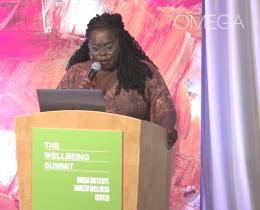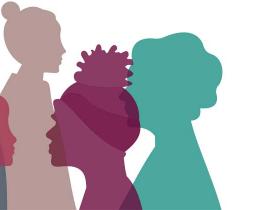Human beings, in general, are pretty terrible at getting along with each other. Whether it’s two people who are in love but can’t stop hurting each other or thousands of people trying to build a social movement but who can’t agree on anything, it just seems like it shouldn’t be this hard. But it is.
There are a lot of different reasons for this, but many of them can be traced back to the way we’re wired to perceive threats. For example, when you’re safe and happy, people tend to look pretty nice. However, when you’re suffering, especially when you’re scared, people fall into one of precisely two categories: (1) those who are doing exactly what you want, and (2) your loathsome and worthless enemies.
In other words, when my bloodstream is filled with cortisol and other distress-signaling hormones, it’s really hard to convince me that you’re not an asshole, unless you’re doing everything I want you to do. When we’re triggered like this, it’s much harder to resolve a conflict because we’re nearly incapable of compromise. Instead, it can often help to prioritize recognizing and transforming our own suffering first. After that, finding solutions gets much easier.
The worst drum circle ever
During the Occupy Wall Street protests, there was a drum circle happening at one end of Zuccotti Park nearly 24 hours a day. I hated that drum circle, and I wasn’t the only one. The people who lived in the neighborhood complained constantly about the noise, and people who were trying to hold meetings or discussions in the park could barely hear each other. Still, the drummers refused to stop.
Eventually we held a mediation session at a nearby cafe. There was a representative from the neighborhood, one from the protest organizers, and one from the drummers. I was asked to be one of two mediators. The representative from the drummers was named Jim, and he explained that many of the people in the drum circle had been homeless in New York for a long time before the protests started and didn’t like people coming into their city and telling them what to do.
When a woman representing the neighbors explained that her children were struggling to do their homework because of the drums, Jim screamed at her. He said she was “collateral damage,” that she was trying to oppress him, and there was no place for her in the revolution. When the representative from the organizers said he wanted there to be a place for her and that she was part of the 99 percent, Jim yelled that he didn’t care about the 99 percent and was there for his own revolution.
To me, this exchange is a microcosm of what’s f*cked up about so many social movements. From a distance, these people seem like they should be natural allies: a homeless man with a revolutionary temperament and a group of people who care deeply about economic inequality. Yet despite all they had in common, they were at each other’s throats with the least emotionally stable person dominating the discussion.
As Jim ranted, the other customers in the cafe started leaving, and it looked like the manager was getting ready to kick us out. I felt like screaming at Jim to shut up, and I had very little hope that this meeting was going to solve anything. I was angry at Jim, afraid that he would derail so many other people’s hard work, and I couldn’t help seeing him as my adversary.
However, I was supposed to be a mediator. I asked myself, “Can I actually do this or should I tap out and leave?” Frustrated and overwhelmed, I disengaged from the arguing and focused on the sensations in my own body. I recognized immediately the feeling of intense grief in my face and chest. I told myself, “All you want is to help people get along, and that impulse in you is beautiful. You really want these demonstrations to be successful, and you’re scared you won’t be able to help, so it hurts.” I took a minute or so to feel that grief and let go of my attachment to controlling the meeting. I needed to accept that no matter how much I want a specific outcome, it might not happen.
There is nothing defeatist about recognizing that you can’t control other people. It’s just true. As much as I wanted a successful mediation session, it was looking like it wasn’t going to happen. I had been in denial of this fact, and that denial was fueling my anger. After I embraced my suffering, I could see the situation more clearly.
As I welcomed my feelings of helplessness, I began to see Jim differently. His out-of-control behavior had felt like a threat when I was trying to control the meeting. Letting go of that, I saw him as he was: someone who had been treated like shit for a long time. I could see the pain and fear in his eyes, and my heart opened to him.
I looked up at Jim with a very different expression than I’d had earlier in the meeting and said his name quietly. I said, “I don’t know about anybody else, but I’m glad you care so deeply about making the world better and about being treated with respect. Whatever we do here, I want us to make sure it starts with making the world better and making sure Jim and the drummers are fully respected.” Everyone else in the meeting nodded anxiously and looked at Jim. He smiled, and his face resembled that of a scared child, but he nodded too. The tone of the meeting changed, and a week later we had an agreement that the drummers would play for two hours a day at the park and then march around the city for the rest of the day.
Three approaches to conflict
Even though we ended up with a successful resolution, part of me still hates how much time and energy it takes to resolve conflicts. It’s a voice in me that sounds like this: “If people weren’t so stupid and mean, we could focus on making the world better instead of wasting so much time talking about their bullshit.” I imagine most people can relate to that frustration.
However, as annoying as it can be, conflict resolution is incredibly important, mostly because the alternatives are awful. I believe there are essentially three ways to approach conflict: (1) isolation, (2) dominance, and (3) dialogue.
1. Isolation
There will never be a relationship that’s conflict-free. So when shit comes up, our first option is to leave. I’ve left lots of jobs, groups, relationships, etc., and I’m usually glad I did. However, if it’s the only thing we know how to do in response to conflict, we’re going to end up pretty isolated.
2. Dominance
The next option is winner-take-all, in which one person dominates and the other submits. Sometimes there’s a fight to determine who wins, and sometimes people just fall into their roles—always dominating or always submitting. Either way, handling conflict like this usually means that the winner’s needs matter, and the loser’s don’t.
3. Dialogue
The third and messiest option is dialogue, in which we approach a conflict with the commitment that everyone’s needs will matter. We might not be able to figure out how to meet everyone’s needs perfectly, but we’ll try. For me, the defining feature of dialogue is that (at its best) everyone is on the same side. We are all trying to figure out how to meet the most needs we can. It’s not that I’m arguing for my needs and you’re arguing for yours. Instead, we’re working together to find a solution that meets as many of our collective needs as possible.
That might sound unrealistic, but it’s not. In fact, with some training, you can learn how to create this kind of connection even with people who are terrible communicators. It’s hard and it doesn’t always work, but there’s a lot more room to improve than most people believe is possible.
Excerpt from How to Stay Human in a F*cked-up World: Mindfulness Practices for Real Life by Tim Desmond. Copyright © 2019 Reprinted with permission by HarperOne, an imprint of HarperCollins Publishers.




